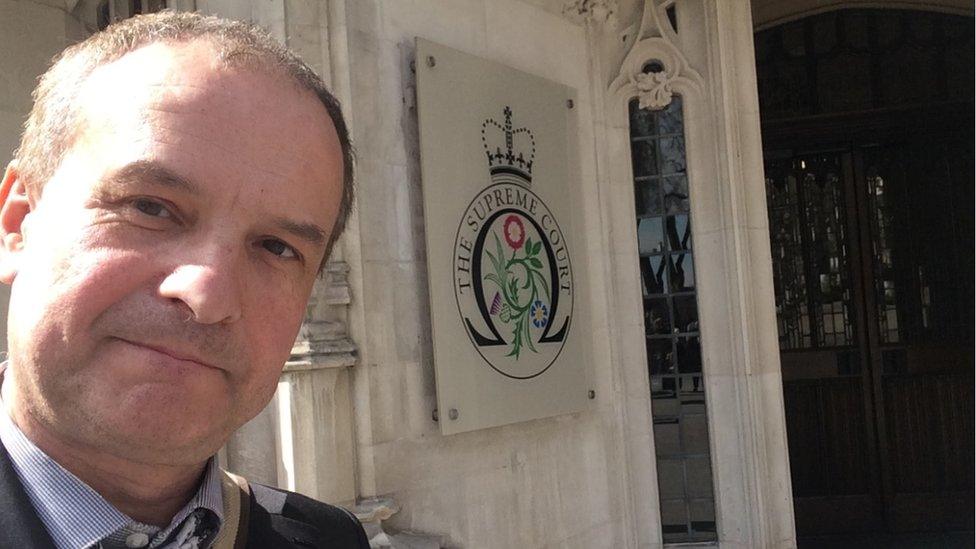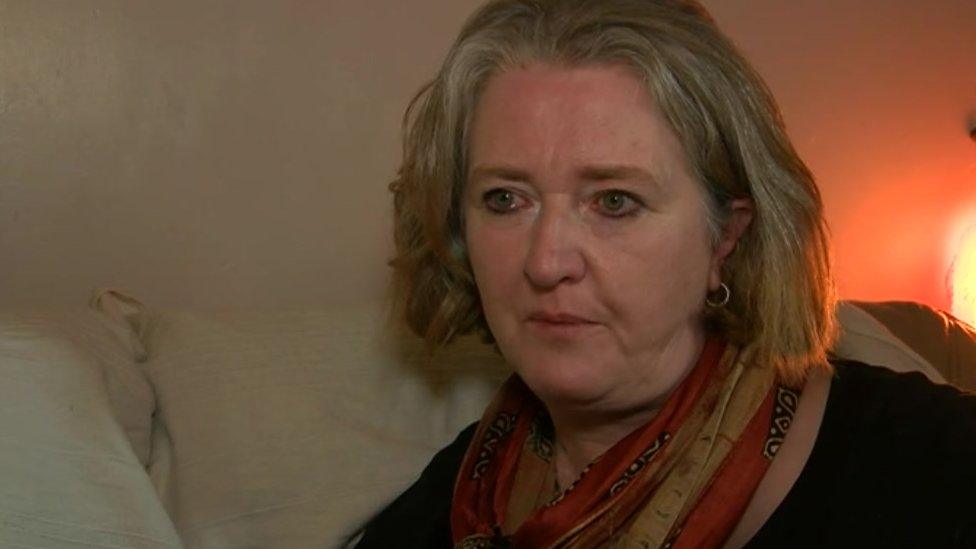Staffordshire law graduate takes DWP to court over benefits delay
- Published

Michael Connor will represent himself at the High Court
A law graduate is taking the government to court to challenge the way decisions on benefit claims are made, arguing it breaches human rights laws.
Michael Connor, from Little Haywood in Staffordshire, says some people must rely on handouts if the Department for Work and Pensions (DWP) takes too long to answer written benefit appeals.
He claims his 22-week wait for a review result breached his right to a "fair" hearing "within a reasonable time".
The DWP would not comment on the case.
Mr Connor, 55, was rejected for Employment Support Allowance (ESA) in October 2018 while caring for his mother. He lodged an appeal against the decision but during his wait he was unable to receive the benefit.
While he waited he was able to access other benefits, but he argues other people might not be able to.
"Some people are left with absolutely nothing to live on and have to rely on food banks and charitable support," Mr Connor said.

The benefits claim appeals process
Since 2013, people seeking to overturn a benefits decision must complete a written challenge within a month, known as a mandatory reconsideration (MR)
If unsuccessful, people can appeal against the decision at tribunal but only after receiving the MR response
When MR was introduced, the DWP said it was to ensure claimants received the right decision earlier, without having to go to court
BBC analysis of five years of data showed the number of appeals in Great Britain dropped by 72% in the year following the introduction of the review
Half of those successfully overturned their disability benefits decision at tribunal.

He called the delay "unacceptable" and said he believed it represented a breach of article six of the European Convention on Human Rights which states everyone is entitled to a fair and public hearing "within a reasonable time".
The High Court has allowed Mr Connor, who completed a Legal Practice Course at Staffordshire University last year, to bring his case before the court, saying the delay he experienced is a "point of some wider public importance".
In court documents, the DWP said the delay was due to "human error and oversight".
It said the delay was "regrettable" but "not unlawful" as "there is no statutory period within which MR must be determined by".
The DWP also claims the delay does not fall under the remit of article six. It also Mr Connor's wait was 18 weeks, rather than 22.
It maintains the right to appeal a benefit decision at tribunal should only exist after a review has taken place because it gives the claimant the opportunity to supply more evidence and information to support their case.
If Mr Connor is successful, benefits claimants will be able to appeal against adverse decisions immediately.

Follow BBC West Midlands on Facebook, external, on Twitter, external, and sign up for local news updates direct to your phone, external.
- Published14 November 2019

- Published14 November 2019
